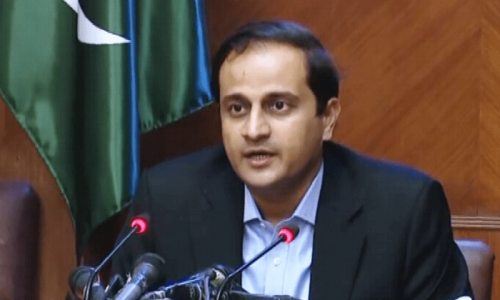KARACHI: Eating the right food at the right time is of critical importance, particularly in Ramazan. It fulfils our nutritional needs as well as helps get maximum benefits from the holy month that offers a great opportunity for self-improvement, including our physical, mental, emotional and spiritual well-being.
This was stated by health professionals while sharing their suggestions with Dawn about healthy eating in Ramazan.
They emphasised that people with chronic health issues should consult their doctors for specific guidelines and that everyone must follow the Covid-19-related standard operating procedures (SOPs), especially social distancing and wearing facemasks.
“Eat healthy food in small amounts and avoid such oily products as pakoras and samosas, as much as you can. The more you eat and burden your stomach, the more you lose the chance to benefit from fasting that should help lose extra weight and not otherwise,” said senior general physician Dr Waqar Sagheer.
Use of face masks, observing social distancing in Ramazan particularly stressed
It’s only because eating a lot and that too unhealthy food that people fell ill and gained extra pounds during the fasting month, he added.
“What we usually see in Ramazan is unfortunate; people spend their whole day resting or sleeping instead of engaging in any productive work,” he said, suggesting use of water (not cold), yoghurt, milk and lassi particularly at sehri.
Explaining what constitutes ‘healthy’, Dr Abdul Ghafoor Shoro, also a senior general physician, said people should eat homemade food, avoid oily products, and have seasonal fruits and vegetables.
“After being without food and water for 12 to 14 hours, the body needs light nutritious stuff that it can easily digest, such as dates, plain water or lemonade and fruits at iftar time. After half an hour or so, one can have roti with vegetables or rice,” he said, adding that yoghurt at sehri was highly recommended as it was an excellent source of electrolytes and quenched thirst.
According to Dr Shoro, a right combination of food was equally important otherwise one might have indigestion.
Social distancing
With Ramazan being observed at a time when the whole country is seeing a surge in Covid-19 cases, there is serious concern among experts over the general disregard the public has been showing for the pandemic-specific SOPs.
This attitude, they said, would worsen the public health crisis during this month as people tend to gather at crowded places.
“We have raised alarm over violation of SOPs multiple times. But, all our pleas have fallen on deaf ears. We are paying a heavy price for this indifference and it’s time that people wake up and start seriously following the SOPs, particularly during this month,” said Dr Shoro.
Care for diabetes
Seasoned endocrinologist Dr Zaman Sheikh said it’s important that diabetes patients received counselling from their doctors on whether they could fast.
“Generally, patients on low risk — patients who are managing type 2 diabetes with the help of oral medicines and lifestyle modification — are suggested to fast. In fact, fasting is good for them, but they should monitor their blood sugar levels during daytime,” he said.
These patients, he noted, could use artificial sweeteners in lassi or lemonade instead of using sugar.
“They should drink lots of water between iftar and sehr time, at least eight to 10 glasses. They can have home-made parathas at sehri prepared in olive or canola oil. Pulpy fruits containing fibre are better than juicy fruits for these patients.”
At times due to negligence and carelessness in eating or avoiding use of medicines during sehri and iftar, diabetes patients might experience health issues.
“We suggest that if blood sugar level drops below 70mg/dL or rises above 350mg/dL with development of some symptoms such as weakness or dizziness, the patient should break the fast and seek medical assistance.”
Published in Dawn, April 15th, 2021














































Dear visitor, the comments section is undergoing an overhaul and will return soon.